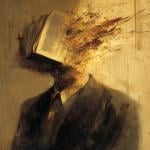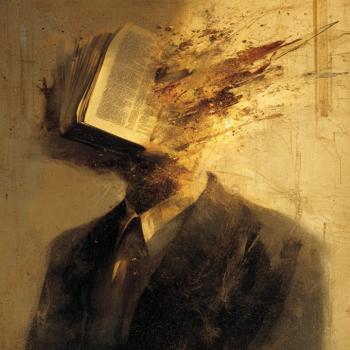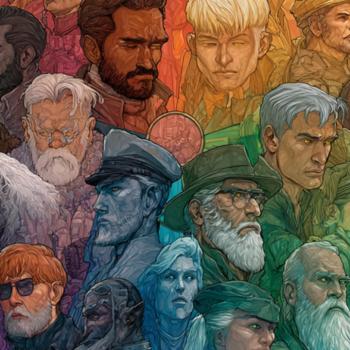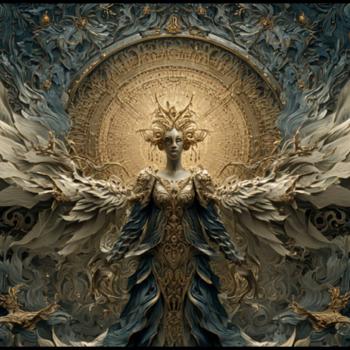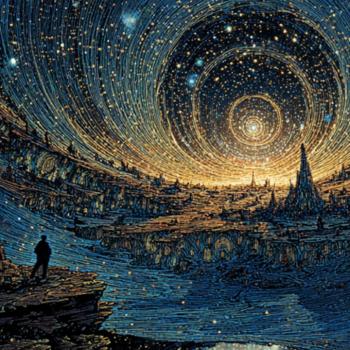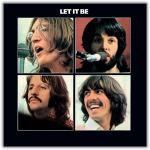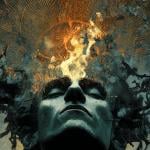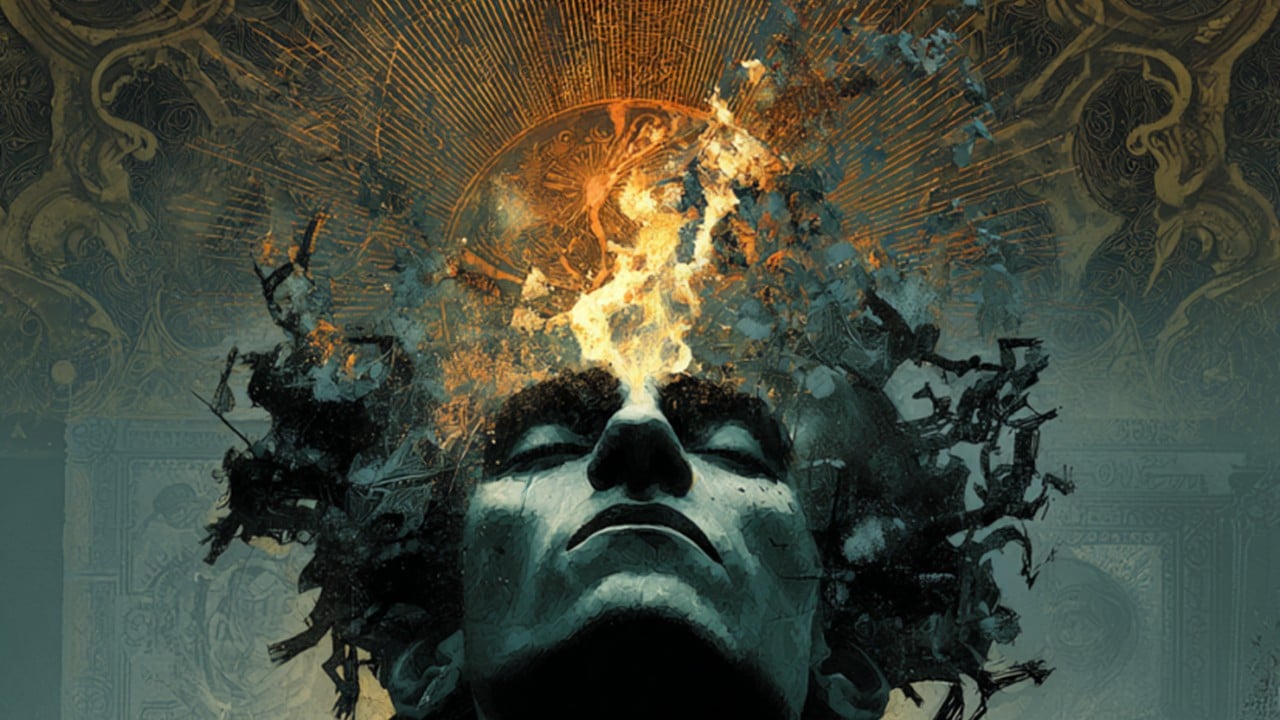
“It’s impossible for anyone to see the everlasting reality and not become like it.
“The Truth is not realized like truth in the world; those who see the sun do not become the sun; those who see the sky, the earth, or anything else, do not become what they see.
“But when you see something in this other space (Kingdom Reality), you become it. If you know the Spirit, you are Spirit. If you know the Christ, you are the Christ. If you see the Father, you are the Father.
“In this Temple Space, you become all things, and you no longer see yourself; in that All-Other you become all things, and never cease to be yourself. Therefore, you see everything here and don’t see yourself, but if you see yourself there, you’ll become what you see.” (The Gospel of Philip vs. 44)
The author of this Gospel wants us to understand the differences between reality itself in the presence of the Divine and reality as we perceive it here whenever we are blinded to the Divine presence.
Unlike our experiences here in this earthly perception of separation, whatever we see does not transform us. We can observe and encounter the sun, the sky, the earth, and all other physical manifestations of creation without being changed.
But this is not possible in the Kingdom Reality of the Divine Presence. When the veil is removed and we are fully awake to the Temple Space where God’s being is unfiltered, we cannot help but become transformed by the pure reality of God.
To know the Spirit is to become the Spirit. To know the Christ is to awaken the Christ within ourselves. To see the Father is to be the Father.
In some ways, we have always already been the Spirit, the Christ and the Father, but our awakening to their eternal being awakens their expressions within us.
As theologian David Bentley Hart has observed, “Only the God who is always already human can become human. Only a humanity that is always already divine can become God. God is all that is.”
This means that God is human and humans are God. God is interwoven with humanity. This idea of our being made of God is echoed by Julian of Norwich who said, “We are not only made by God, we are made of God.”
Many early Christians affirmed this notion of the Deification of Humanity.
For example, Athanasius, the Bishop of Alexandria, who lived between 296 and 373 A.D. said this:
“The Word was made flesh in order that we might be made gods. … Just as the Lord, putting on the body, became a man, so also we men are both deified through his flesh, and henceforth inherit everlasting life…For the Son of God became man so that we might become God.”
Irenaeus, a Greek leader in the early Church of Lyons (130-202 A.D.) said that God had “become what we are, that He might bring us to be even what He is Himself.”
For most of those early Christians, Deification was understood to be a process that took place during the eating of the Eucharist. This was widely taught by early Church Fathers like Gregory of Nyssa and Cyril of Alexandria.
Clement of Alexandria (150–215 A.D.)
“Yea, I say, the Word of God became a man so that you might learn from a man how to become a god….if one knows himself, he will know God, and knowing God will become like God. . . .”
Justin Martyr (100–165 A.D.)
“[In the beginning] men were made like God, free from suffering and death,” [and now are] “deemed worthy of becoming gods and of having power to become sons of the highest.”
Augustine of Hippo (354-403 A.D.)
“But he himself that justifies also deifies, for by justifying he makes sons of God. ‘For he has given them power to become the sons of God’ [referring to John 1:12]. If then we have been made sons of god, we have also been made gods…To make human beings gods, He was made man who was God…”
Hippolytus of Rome (170-235 A.D.)
“And you shall be a companion of the Deity, and a co-heir with Christ, no longer enslaved by lusts or passions, and never again wasted by disease. For you have become God…If, therefore, man has become immortal, he will also be God.”
Gregory of Nyssa (335-395 A.D.)
“Since the God who was manifested infused Himself into perishable humanity for this purpose…that by this communion with Deity mankind might at the same time be deified…”
Maximus the Confessor (580-662 A.D.)
“In theosis, man (the image of God) becomes likened to God.”
Cyril of Alexandria (376-444 A.D.)
“He came down into our condition solely in order to lead us to his own divine state…In short, he took what was ours to be his very own so that we might have all that was his.”
Gregory of Nazianzus (329-390 A.D.)
“…[we] become gods for (God’s) sake, since (God) became man for our sake.”
“Through the medium of the mind he had dealings with the flesh, being made that God on earth, which is Man: Man and God blended. They became a single whole, the stronger side predominating, in order that I might be made God to the same extent that he was made man.”
Basil of Caesarea (330-379 A.D.)
“…[for] becoming a god is the highest goal of all”
St. Thomas Aquinas (1225-1274 A.D.)
“Now the gift of grace surpasses every capability of created nature, since it is nothing short of a partaking of the Divine Nature, which exceeds every other nature. And thus it is impossible that any creature should cause grace. For it is as necessary that God alone should deify, bestowing a partaking of the Divine Nature by a participated likeness, as it is impossible that anything save fire should enkindle.”
So, as strange as this doctrine might sound to us, the reality is that this idea of man being made God has a very long thread within the Christian faith. We are made of a God who has always been human and we are a humanity that has always been Divine.
Our task is to be human as God is human. Because to be fully human – to see the Child of Humanity within ourselves – is to awaken to the truth that God is and always has been and always will be right here.
Immanuel: God with us, and in us, and us.
**
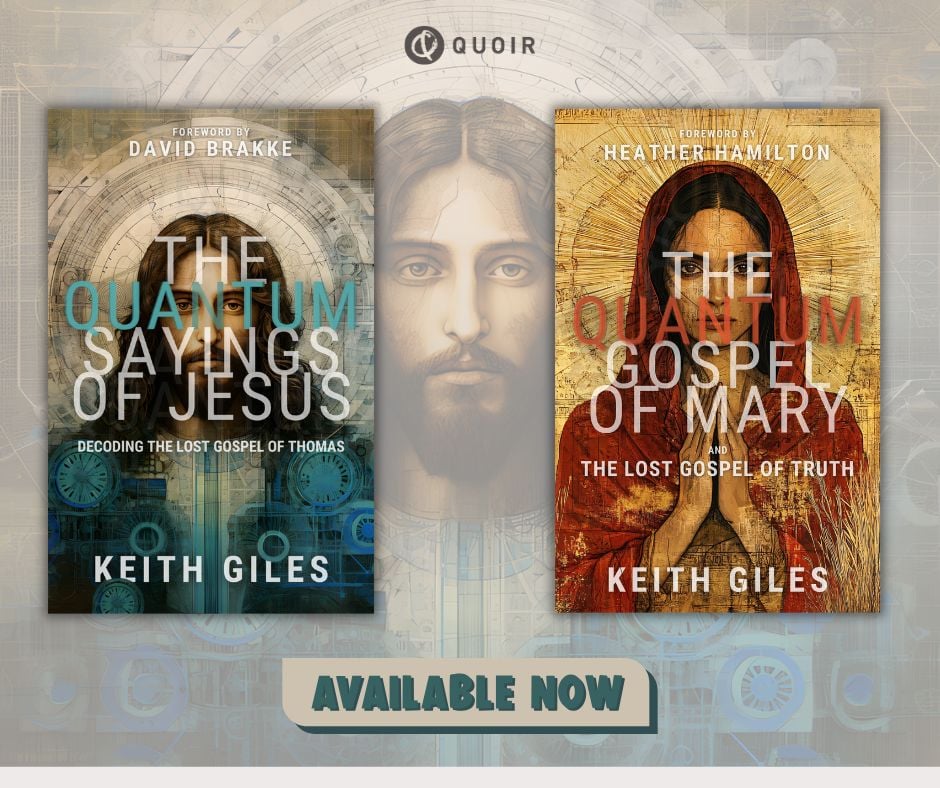
The new book, “The Quantum Gospel of Mary and the Lost Gospel of Truth”is now available on Amazon. The book from Keith Giles, “The Quantum Sayings of Jesus: Decoding the Lost Gospel of Thomas” is available now on Amazon. Order HERE>
Keith Giles is the best-selling author of the Jesus Un series. He has been interviewed on CNN with Anderson Cooper, Coast to Coast Radio with George Noory, USA Today, BuzzFeed, and John Fugelsang’s “Tell Me Everything.”He co-hosts The Heretic Happy Hour Podcastand his solo podcast, Second Cup With Keith which are both available on Spotify, Amazon, Apple, Podbean or wherever you find great podcasts.


